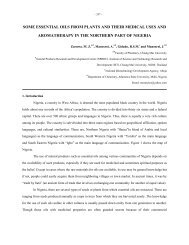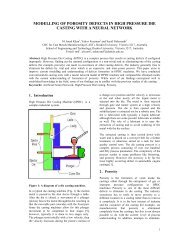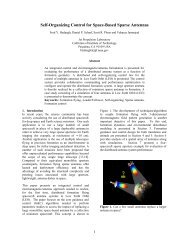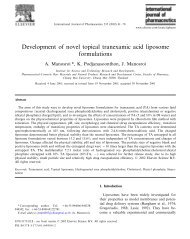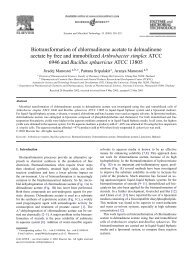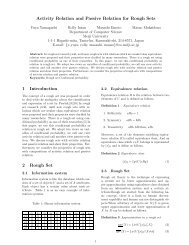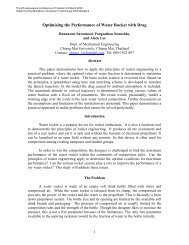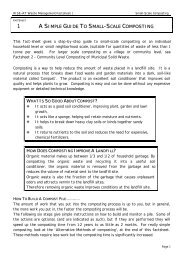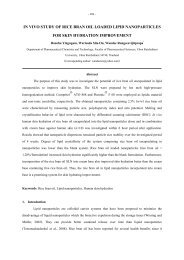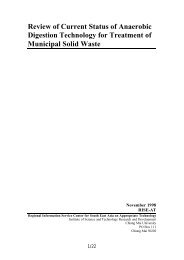COMMUNITY LEVEL COMPOSTING OF MUNICIPAL SOLID WASTE
COMMUNITY LEVEL COMPOSTING OF MUNICIPAL SOLID WASTE
COMMUNITY LEVEL COMPOSTING OF MUNICIPAL SOLID WASTE
You also want an ePaper? Increase the reach of your titles
YUMPU automatically turns print PDFs into web optimized ePapers that Google loves.
RISE-AT Waste Management Factsheet 2<br />
Community Level Composting of Municipal Solid Waste<br />
Figure 9 : Turning Procedure for Aeration Tunnel (method 2)<br />
Section Through Pile Ready for Turning<br />
Section Through New<br />
Pile<br />
1<br />
2<br />
gap approx 1m<br />
Vacant Aeration Tunnel<br />
1<br />
2<br />
1<br />
2<br />
1<br />
STEP 4 – HOW TO SCREEN AND MATURE THE COMPOST<br />
The compost is ready when it has become a dark, crumbly texture and has a fresh, slightly<br />
sweet smell. Very little of the original organic material should be identifiable. A constant<br />
temperature, below 45°C, also indicates that the process is complete. Depending on<br />
conditions, (moisture level/ number of times the compost has been turned, etc), the<br />
compost should be ready after about 4 – 5 weeks. Again, pilot tests monitoring<br />
temperature should be used to determine the time accurately for a new composting<br />
facility.<br />
Following the completion of this composting stage the compost must enter a maturing<br />
stage, which should be at least 2 weeks. This ensures that the compost is completely<br />
matured and safe to use.<br />
For the maturing stage the compost can be left in the pile or removed from the<br />
pile/windrow and moved to another area. In this way the windrow area can be used for<br />
new incoming waste. The size of the maturing pile is not so critical and the compost can be<br />
left in the pile until it is required for use.<br />
After the maturing phase the compost will require screening before it is ready to be sold<br />
as a soil conditioning product. (Alternatively this screening can be done before the<br />
maturing process if preferred.) This screening phase will remove any large pieces of<br />
cloth/plastic/glass etc that may not have been removed in the initial sorting process. This<br />
Page 17



